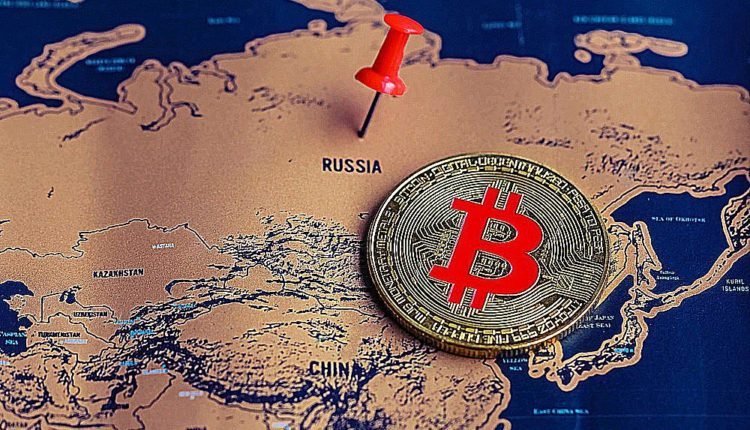Russian President Vladimir Putin signed two bills on Monday that dramatically tighten government control over the Internet and the use of cryptocurrencies such as Bitcoin and Ethereum, and signed a controversial Internet sovereignty law that strengthens state control over the Russian Internet.
The Tass news agency reported that the law came into force after Putin signed it to create a “stable operation” for the “Russian Internet” (Runet), which is to be disconnected from global infrastructure and the World Wide Web. Russian Internet, “Runet,” to dramatically increase its access to the world’s most popular digital currency.
And now the Russian government wants most of its Internet traffic to be domestically directed in the next few years. The law will allow Russia to channel its web traffic and data through government-controlled entities such as the Federal Security Service (FSB) and the Interior Ministry.
The ministry also wants to introduce mechanisms for controlling virtual money, according to a recent bill submitted to the Russian parliament, which will punish crypto dealers with prison sentences and hefty fines if it comes into force. One of the draft laws aims to ban transactions with cryptocurrencies on the territory of Russia. At the same time, individuals and companies are not allowed to accept cryptocurrencies as a means of payment.
The regulation is part of the law on the Regulation of Digital Assets, which is intended to establish guidelines for the use of cryptocurrencies in Russia. While the document is subject to regulatory evaluation, it allows Russian banks to impose a blanket ban on cryptocurrencies – assets – and force them to block transactions, close individual accounts of crypto merchants within Russia, and prevent all transactions.
He said that if the proposal is adopted and enters into force in its current form, it will mean the end of cryptocurrency circulation in Russia. However, in January 2017 Moiseew said he saw no threat to the use of cryptocurrencies. He told Cooper that his group was also consulted on the draft cryptocurrency law, but that the bill still contains unfavorable conditions. Putin said in early October 2017 that crypto could easily be used for money laundering and other illegal activities.
The amendments will be finally adopted on second reading, after which the bill will be submitted to the upper house of the Federation Council for a final vote before being put into force by President Vladimir Putin. The law, which Reuters expects to be adopted on July 1, has been postponed by two days compared with the Duma’s first reading. Back in March, it was reported that Putin had signed two more bills giving the Russian government the power to punish people for illegal activities such as drug trafficking and human rights abuses. Russian President Vladimir Putin will almost certainly pass and sign into law the law passed and signed by the lower chamber of Russia’s upper house, the Federal Security Council (FSB).
The Russian government has denied that it’s stepping against Internet freedom, insisting that the law should ensure the viability of the Internet, despite the country’s possible aggressive moves in cyberspace. Russian lawmakers have advocated tighter Internet controls because they believe it is necessary to prevent foreign interference in Russia’s affairs.
Back in 2017, the Russian president issued a decree establishing the “Russian Government Bank,” which was created to test various innovative financial technologies.
The Russian government is subsequently preparing to create a “Russian Internet” that would be separate from the World Wide Web, Bitcoin.com. The Bank of Russia opposed the first version of the bill, with the local news agency TASS reporting at the time that the central bank disagreed with the way transactions between cryptocurrencies – roubles and foreign currencies – were handled. Elvira Nabiullina, the head of Bank Russia, said she was against saying that only the ruble could be used to pay for goods and services. It is possible that if cryptocurrencies are explicitly permitted in Russia, inheritance law could be changed to deal directly with cryptocurrencies.


